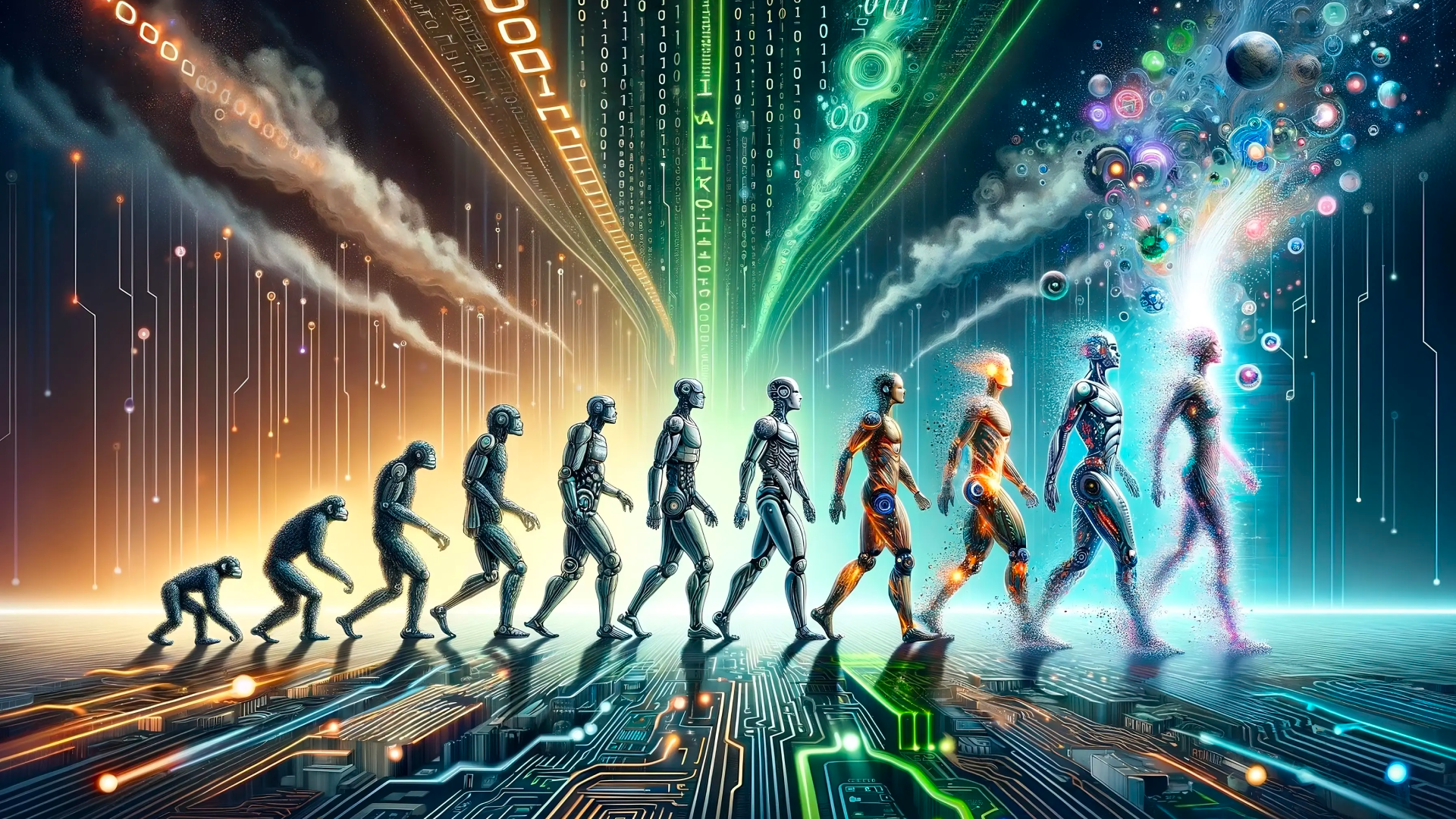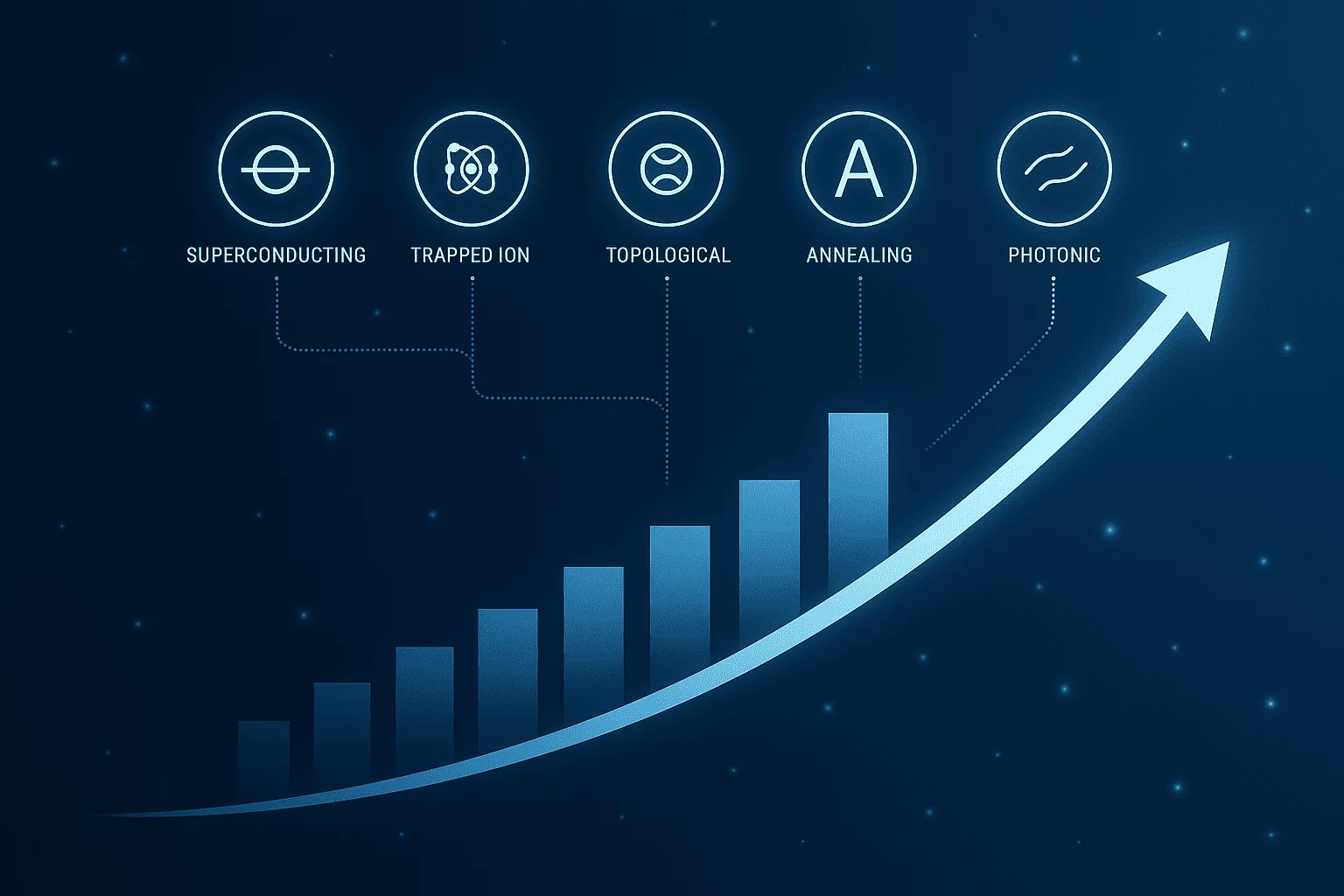Over the past decade, we’ve seen breathtaking advances in Artificial Intelligence (AI), from GPT-based models like ChatGPT revolutionizing communication to AI diagnosing diseases with more accuracy than human doctors. Meanwhile, quantum computing has been growing steadily in the background, promising an entirely new form of computation based on the strange and powerful laws of quantum physics. Now, in 2025, these two powerful forces are converging in what experts call Quantum AI (QAI), and this fusion might be the key to unlocking one of humanity’s biggest scientific dreams: Artificial General Intelligence (AGI). Explore how quantum computing is revolutionizing AI and accelerating the path to Artificial General Intelligence (AGI). Learn how QAI enhances learning, efficiency, and real-world problem-solving.
AGI is the concept of an AI system that can understand, learn, and apply intelligence across a broad range of tasks—much like a human. While we’re still far from replicating the full scope of human cognition, the development of QAI is making many researchers and tech leaders wonder: Are we actually closer than we think?
Understanding the Basics: What Is Quantum AI?
Quantum AI is the interdisciplinary field that merges quantum computing with machine learning and AI systems. Traditional AI relies on classical computers to process data, learn from it, and make decisions. However, classical computers are reaching their limits in terms of speed and complexity when handling massive datasets and performing real-time predictions.
Quantum computers, on the other hand, operate using qubits instead of bits. Unlike classical bits, which are either 0 or 1, qubits can exist in multiple states simultaneously, thanks to quantum superposition. Additionally, entanglement allows qubits to be linked in ways that classical systems can’t replicate. These unique properties mean that quantum computers can theoretically perform many calculations at once, significantly accelerating tasks that are bottlenecks in traditional AI.
Quantum AI leverages this speed and complexity to enhance core areas of AI: model training, optimization, and pattern recognition.
Breaking Bottlenecks: How Quantum Computing Accelerates AI
One of the primary challenges in AI development is training complex models, especially neural networks. These models require enormous computational resources and time. Here’s where quantum computing steps in.
Faster Model Training: Quantum computers can explore multiple pathways simultaneously, making them potentially exponentially faster at optimizing neural networks. A 2023 study by Google AI in collaboration with the University of Waterloo showed that quantum-enhanced training reduced convergence time by up to 60% in specific machine learning models.
Enhanced Feature Selection: Quantum systems can quickly analyze which features in a dataset are most relevant. This means faster and more efficient learning, particularly in high-dimensional data environments.
Boosting Natural Language Processing (NLP): NLP is at the heart of modern AI applications like chatbots and virtual assistants. Quantum AI can vastly improve the training of large language models (LLMs), reducing the training period from months to potentially days.
Solving the Optimization Problem: AI systems often need to find optimal solutions within a complex landscape of choices—from delivery routes to investment portfolios. Quantum optimization algorithms, such as the Quantum Approximate Optimization Algorithm (QAOA), are already showing promise in solving these problems faster than classical counterparts.
The Role of Quantum AI in Reaching AGI
Artificial General Intelligence is often defined by its ability to:
- Learn from any kind of data
- Generalize learning across different domains
- Exhibit reasoning, problem-solving, and even emotional intelligence
These are tall orders for current AI systems, which excel in narrow domains but struggle outside their training environment. Quantum AI introduces several capabilities that could close this gap.
Generalization Across Domains: Quantum AI can more effectively process relationships within data that are non-linear or seemingly uncorrelated, improving cross-domain learning capabilities—a crucial step toward AGI.
Handling Uncertainty: AGI must deal with uncertain and incomplete information. Quantum mechanics, inherently probabilistic, aligns well with this. Quantum AI models naturally incorporate uncertainty, giving them a structural advantage in real-world applications.
Smarter Reinforcement Learning: Reinforcement Learning (RL) is a key component of AGI. Quantum-enhanced RL can speed up the learning of optimal policies in complex environments, making AI more adaptive and intuitive.
Real-World Progress: Where Are We Today?
While true AGI remains aspirational, many milestones are being reached in 2025 that show steady progress.
IBM and Xanadu Collaboration (2025): IBM and Canadian quantum startup Xanadu launched a hybrid quantum-classical AI system capable of processing over 1 million parameters—a feat previously impossible using purely classical systems.
Microsoft’s Azure Quantum Platform: Microsoft recently integrated Q# language capabilities into its Azure platform, allowing developers to build hybrid AI models using both classical and quantum resources. Over 20,000 developers have signed up in the first quarter of 2025 alone.
Google Quantum AI Lab: Google announced that its Quantum AI division trained a prototype model combining classical transformers with quantum gates, achieving superior performance in molecular structure prediction—a traditionally complex problem for AI.
Funding & Investment: According to CB Insights, global investment in Quantum AI startups reached $4.3 billion in 2024, a 68% increase from 2023.
Challenges and Ethical Considerations
With all this excitement, it’s important to acknowledge the hurdles that remain.
Scalability: Current quantum hardware still suffers from decoherence and limited qubit count. While progress is being made, it may take another 5–10 years for quantum systems to reach the required stability for large-scale AI.
Accessibility: Quantum computing is still resource-intensive. Cloud access is helping, but true democratization is years away.
Bias and Black Box Models: The fusion of quantum and AI may make interpretability even harder. AGI will require not just powerful processing, but explainability and ethical safeguards.
Data Privacy: With immense power comes responsibility. Quantum AI systems could be capable of breaking current encryption methods. The risk to data privacy is real and needs immediate attention.
Looking Ahead: What Experts Are Saying
Many leading voices in the field remain cautiously optimistic.
Dr. Michelle Simmons, a pioneer in silicon-based quantum computing, recently stated: “The speed at which quantum AI is moving suggests we could see foundational AGI capabilities emerge within a decade, especially in reasoning and transfer learning.”
Demis Hassabis, CEO of DeepMind, mentioned during a 2025 panel that hybrid models are showing “early signs of general intelligence behaviors—not just imitation, but genuine problem-solving across contexts.”
Mattias Knutsson, a strategic leader in global procurement and business development, weighed in on the topic during a recent tech conference in Stockholm: “Quantum AI will fundamentally change how businesses innovate and make decisions. The path to AGI isn’t just about computing power; it’s about building intelligent systems that understand human priorities.”
His perspective highlights a crucial point: AGI isn’t just a technological challenge, but a human one. The way we guide its development matters.
Conclusion:
Quantum AI represents more than just a new era of computing. It’s the spark that might ignite the long-sought fire of Artificial General Intelligence. While we are still climbing the mountain, the path is clearer than ever, and the summit more visible. From faster model training and improved generalization to smarter decision-making, QAI is laying the groundwork for systems that may one day think, adapt, and reason like humans.
Yet, we must tread carefully. As Mattias Knutsson insightfully reminds us, AGI is as much a matter of philosophy and ethics as it is of technology. The choices we make now will shape not just the machines we build, but the kind of world we create.
So, are we closer to AGI than we think? The signs say yes. But the real question is: will we be ready for it when it arrives? Stay curious, stay cautious—and stay tuned.





